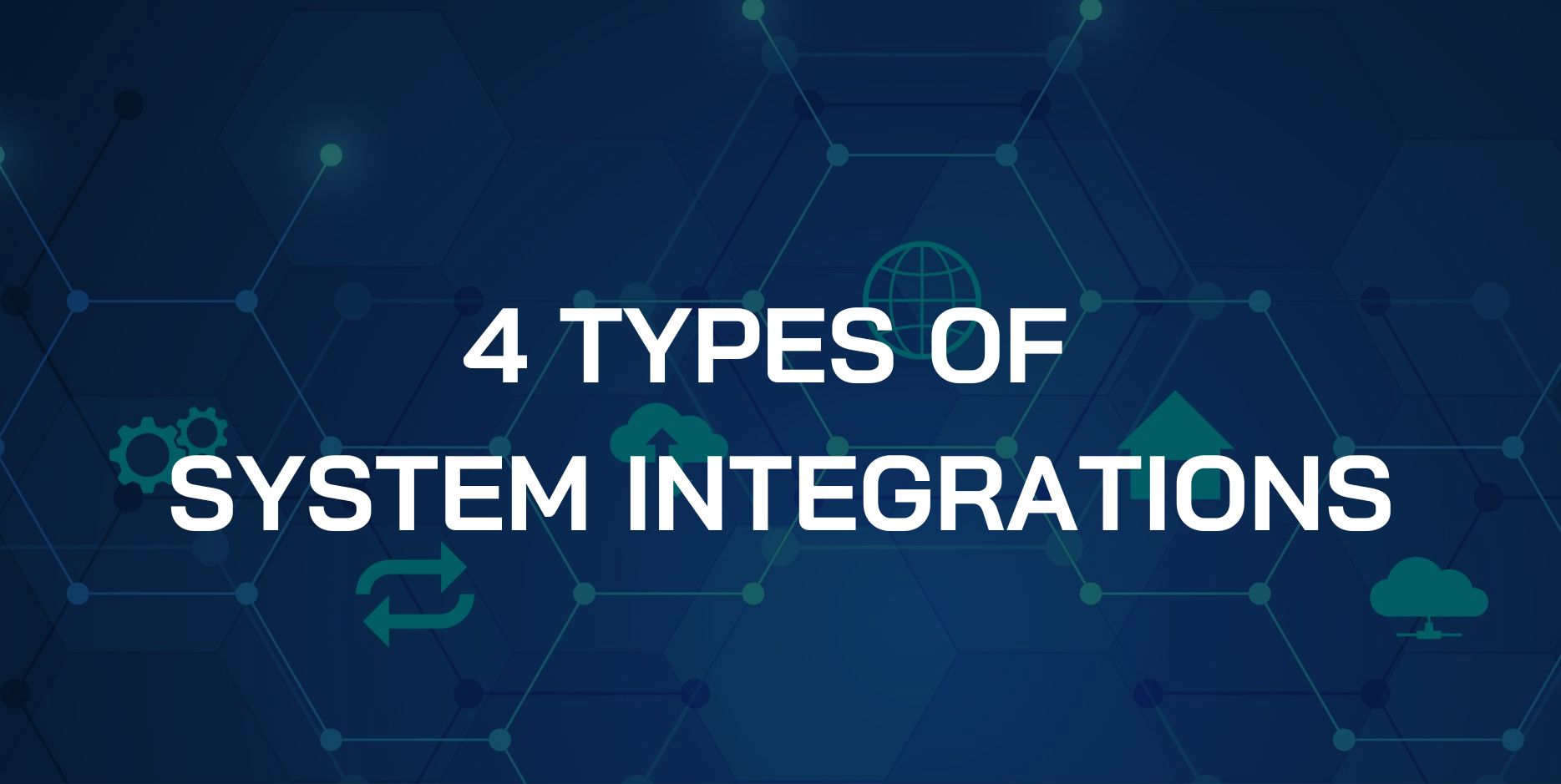System integration is the process of connecting different software systems, applications, and devices to work together as a unified whole. System integration can help businesses improve their efficiency, productivity, customer satisfaction, and competitive advantage. However, system integration can also be challenging, complex, and costly, especially for large-scale projects. Therefore, it is important to understand the benefits, types, methods, and best practices of system integration, and how to select the right integration company for your needs. In this article, we will explore these aspects of system integration, and provide some tips on how to hire offshore developers for your integration project.
What is System Integration?
System integration combines multiple systems or components into a unified, functioning entity. It aims to synchronize various elements of a system to operate cohesively. This integration process can include merging older legacy systems with modern ones, facilitating electronic business document exchanges, or developing interfaces for seamless system communication and data sharing. Key benefits of system integration include heightened productivity, enhanced quality, and cost reductions.
Benefits of System Integration
System integration can bring many benefits to your business, such as:
- Cost Reduction: By eliminating redundant processes and systems, system integration streamlines workflows, leading to significant savings in maintenance, licensing, training, and support.
- Boosted Efficiency and Productivity: Automating and optimizing business processes through system integration enhances data exchange and team communication, reducing errors and delays while increasing overall productivity.
- Enhanced Customer Satisfaction: Integrating systems like CRM, marketing, sales, and support fosters improved customer service. It enables a holistic view of customer interactions, leading to personalized and relevant customer engagement.
- Innovation and Competitive Edge: Leveraging insights from integrated systems aids in strategic decision-making and innovation, keeping businesses ahead of market trends and customer expectations.
Types of System Integration
System integration varies based on your project’s scope, complexity, and architecture. Here are the key types:
- Point-to-Point Integration: The most basic form, linking two systems directly. It’s easy to set up but may become inefficient as more systems are added.
- Hub-and-Spoke Integration: Utilizes a central hub to manage multiple systems, streamlining processes and boosting system performance, though it introduces potential single-point failures.
- Enterprise Service Bus (ESB) Integration: Involves a distributed, modular system acting as an intermediary, offering enhanced flexibility and security. It supports various protocols but is costlier and more complex to manage.
- Microservices Integration: Consists of independent services communicating via APIs, accelerating development and supporting continuous improvement, albeit with increased coordination challenges.
Methods of System Integration
System integration methods vary based on the approach, technique, and strategy of your project. Key methods include:
- Vertical Integration: Aligns systems functionally from the bottom to the top, such as integrating database to presentation layers. Quick and straightforward, this method may however lead to rigidity and system dependencies.
- Horizontal Integration: Connects systems across the same level, for example, integrating CRM, ERP, and SCM systems. While offering flexibility, it demands a common interface and can be costly.
- Point-to-point Integration: Integrates systems in a star-shaped pattern based on their relationships, efficiently linking core systems with peripherals. This method, while effective, risks bottlenecks and reliance on the core system.
- Common Data Format Integration: Utilizes universal data formats like XML, JSON, or CSV for seamless data exchange. It ensures consistent data handling but can be complex to implement across all systems.
Selecting the Right Integration Company
System integration can be a complex and risky endeavor, and it requires a high level of expertise, experience, and resources. Therefore, it is advisable to hire a professional and reliable offshore developers that can help you plan, design, implement, and manage your integration project. However, finding and hiring the right offshore developers can be a daunting task, especially when you have a limited budget and time. Here are some tips on how to select the right integration company for your needs:
- Setting Integration Objectives: Begin by clearly defining your integration project’s goals. Identify desired improvements, like better efficiency or customer satisfaction, and detail your project’s scope, complexity, architecture, and methodologies, along with the involved systems and applications.
- Investigating Integration Firms: Armed with your objectives and requirements, research integration firms that meet your criteria. Moreover, look for companies with established expertise in system integration, evidenced by client feedback and a track record of success. Additionally, prioritize offshore developers known for their market presence, showcasing a portfolio of successful integrations and transparent, competitive pricing.
- Choosing an Integration Partner:
- Quality Review: Scrutinize the service and solution quality of potential partners, ensuring alignment with your integration goals. Focus on evaluating the functionality, performance, security, and reliability of their proposed system.
- Communication Analysis: Assess how well the company communicates, a vital factor for effective collaboration with your team and clear, ongoing project dialogue.
- Support Evaluation: Consider the company’s support and maintenance offerings. Select a partner that ensures continual, prompt support, adept at managing any post-integration issues or updates.
How to Hire Offshore Developers for Your Integration Project
One of the ways to reduce the cost and complexity of your integration project is to hire offshore developers who can work remotely and independently on your integration project. Hiring offshore developers can offer you many benefits, such as:
- Access to Global Talent: Hiring offshore developers provides access to a vast, diverse pool of skilled professionals, bringing varied perspectives and expertise to your system integration projects.
- Cost Reduction: This approach significantly lowers operational and labor costs by reducing the need for physical office space and local staffing expenses. Offshore developers, working remotely, often offer more competitive rates.
- Enhanced Flexibility and Scalability: It allows for adaptable hiring models, including project-based or part/full-time engagements, enabling you to tailor your team’s size and skill set as per project demands and budget constraints.
1. The challenges and risks when hiring offshore developers
- Communication Hurdles: Differing languages, cultures, time zones, and work styles between you and the offshore team can lead to potential misunderstandings, impacting project quality and efficiency.
- Quality and Security Concerns: Reduced oversight of offshore developers might lead to variations in work quality and potential security risks, affecting the system’s functionality and safety.
- Compliance Complexities: Navigating diverse international laws and regulations related to data protection, taxation, and labor can present legal and ethical challenges, risking penalties and disputes.
2. Key strategies when hiring offshore developers for system integration
- Clear Project Scope Communication: Articulate a detailed project description, encompassing scope, goals, requirements, deliverables, timelines, budget, and quality standards. Regularly and promptly share feedback and updates with your offshore team.
- Tool and Platform Selection: Opt for tools and platforms that enhance communication and collaboration, ensuring they are secure, compatible, and feature-rich for chat, video, file sharing, and project management.
- Best Practices and Workflow Consistency: Implement and share best practices and processes with your offshore team. Establish a clear workflow and document it, maintaining regular schedules for updates and meetings.
- Choosing a Reliable Hiring Platform: Select a reputable platform for hiring and managing offshore developers, focusing on:
- Diverse Talent Pool: Ensure the platform offers a wide range of skilled developers experienced in system integration, backed by a thorough vetting process.
- Flexible Pricing and Secure Payment: Look for platforms offering flexible, fair pricing and secure payment methods, with clear refund and dispute policies.
- Effective Project Management Tools: Choose platforms that provide comprehensive project management and monitoring systems, facilitating efficient team collaboration and work review.
- Robust Customer Support: Ensure the platform offers strong customer support, available 24/7, to assist with any project-related queries or issues.
Conclusion
System integration is not just a technical process, but a strategic one. It can help you achieve your business goals, and enhance your customer experience and satisfaction. However, system integration can also be a complex and costly endeavor, and it requires a high level of expertise, experience, and resources. That is why you need to partner with a professional and reliable integration company or hire offshore developers that can help you plan, design, implement, and manage your integration project.
At OnextDigital, we are a leading digital agency that offers a wide range of services and solutions for your system integration needs, such as web development, mobile app development, UX/UI design, and white label software. We have a team of talented and experienced offshore developers who can work remotely and independently on your integration project, and who can offer you high-quality and cost-effective integration solutions. Moreover, we also have a platform that can help you communicate and collaborate with your offshore developers. Contact Us Today.







